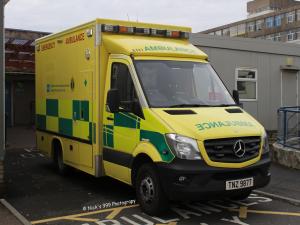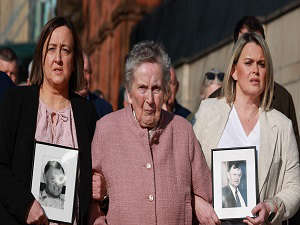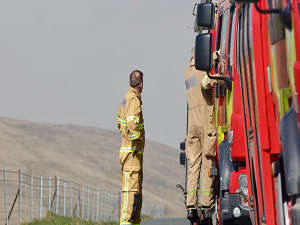
by David Young, PA
The ambulance service needs a £30 million cash injection to address staffing shortages that have been exacerbated by the coronavirus pandemic, MLAs have heard.
And Northern Ireland Ambulance Service management told the health committee the number of operational staff needs to be increased by about a third over the next five years – from around 1,000 to 1,320.
NIAS chief executive Michael Bloomfield said the capacity gaps are currently being plugged with an overreliance on overtime or the use of voluntary and private sector ambulances.
The committee heard that, at points during the pandemic, one in five of the overall workforce was absent for Covid-19 related reasons.
“Our staff have been working under extreme pressure for nine months, but that was immediately following a difficult winter, so it’s really over a year now that they have worked in those sorts of challenging circumstances and we all expect a very difficult three to four months ahead over the winter time,” Mr Bloomfield told MLAs.
“Staff are extremely tired, they haven’t had the type of breaks that they normally would, they are working in difficult conditions, wearing PPE almost all the time during their 12-hour shifts, and they face the same restrictions and anxieties in their personal lives as the rest of the population.”
Mr Bloomfield acknowledged that some patients had waited too long for an ambulance as a result of the pressures facing the service this year.
“I recognise that many patients waited too long for an ambulance to arrive and do not receive the experience that we wish to provide them, despite the very best efforts of our staff, and I do apologise to patients and their families when that is the case,” he said.
Mr Bloomfield stressed that lack of funding had not been an issue during the pandemic, with the NIAS set to receive an additional £12 million during the year to address Covid-19 pressures.
However, he said additional investment is needed to address the longer term staffing issues.
He said a business case is being examined by the Department of Health but indicated that £30 million would be required to recruit the extra numbers needed.
“We currently have 1,450 staff in total; about 1,000 or just over of those are our clinical staff,” he said.
“So to be looking for and requiring an uplift in 320 more clinical staff in percentage terms is a very significant increase and I’m very aware of that.
“And we are probably looking for a level of increase beyond what other organisations would be looking for and I am very conscious that it’s a system where for many, many services demand exceeds capacity – that’s the reality of the growth in demand against challenging financial environments for the last five plus years.
“So we are requiring a significant investment.”


 O’Neill writes to PM urging public inquiry into Sean Brown murder
O’Neill writes to PM urging public inquiry into Sean Brown murder
 Campaign to increase cancer awareness through pharmacies rolled out
Campaign to increase cancer awareness through pharmacies rolled out
 Concern over PSNI vehicles fleet, with 20% off road at worst point in 2023
Concern over PSNI vehicles fleet, with 20% off road at worst point in 2023
 Man released by police after Newry stabbing incident
Man released by police after Newry stabbing incident
 Firefighters tackle almost 150 wildfires across three days in Northern Ireland
Firefighters tackle almost 150 wildfires across three days in Northern Ireland